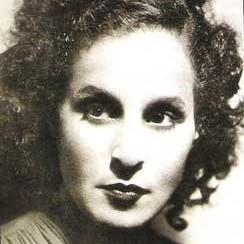The Burgschaft debate and the timeless of the untimely
The Burgschaft debate and the timeless of the untimely
Nazi critics of “Die Burgschaft” ignored or were unaware that the source of Herder's parable “Der afrikanische Rechtspruch” is a section of the Talmud dealing with questions of property. But these aspects should not overshadow the work's underlying Tolstoyan ideals and pointed contemporary political references--in particular, to Gandhi's ongoing opposition to Britain's colonial system. The ultimate demonstration of Weill's confidence in the power of his music to evince truth or evoke the impalpable lies in the almost unrelieved negativity of the libretto, which most often rejects the idea that either the individual or the community is capable of acting selflessly, let alone heroically. The critical reactions of Trantow, Bekker, and Bloch, together with Weill's published response to Trantow, articulate central issues as well as the timeless ideas that Weill suggested lay behind the opera's libretto. The opera's pledge was not between two individuals, but between the individual and the law, the law and the state, the state and its government, the government and the people, and the people and the individual.





